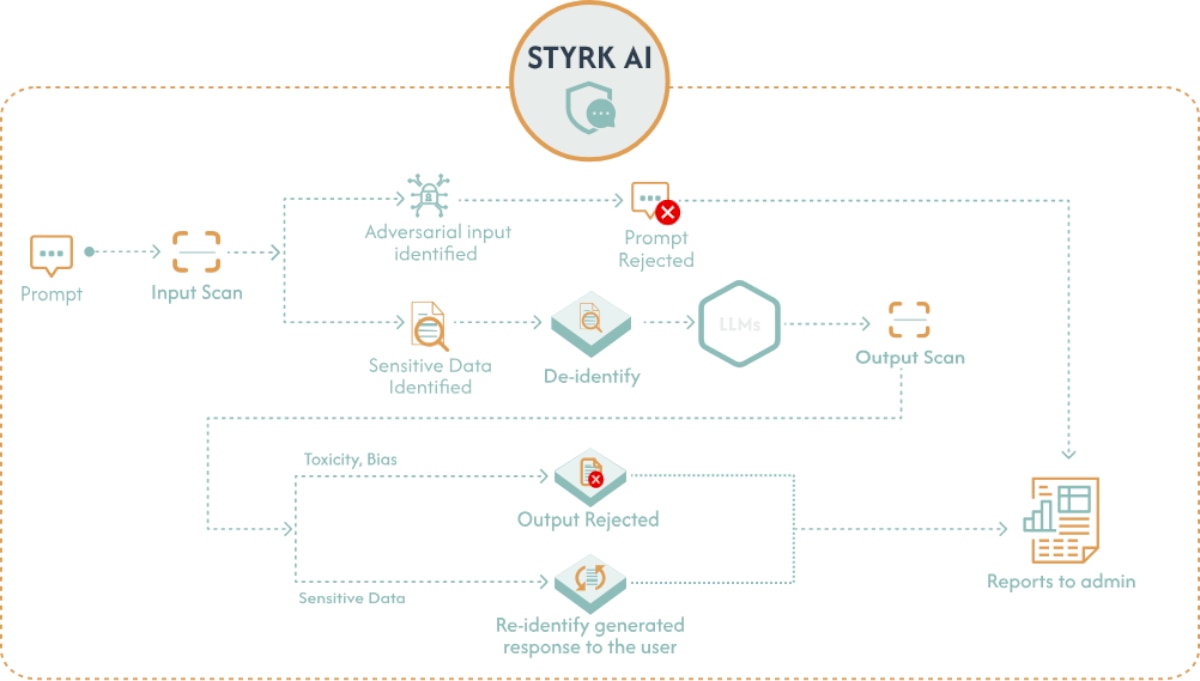AMD, ISV Security Partners Collaborate to Protect the AI PC
Aug 05, 2025

AI has made headlines in recent years for its seismic impact across the software industry, and cybersecurity is no exception. Like other disruptive technologies, AI introduces both powerful new capabilities and novel security risks. Artificial intelligence can enhance threat analysis and automate safeguards, but it also opens new avenues of attack, from sophisticated phishing to convincing deepfakes.
This duality is not new. Encryption can protect a company's most sensitive data or be exploited by illicit ransomware to lock that data away. Twenty-five years ago, internet adoption transformed global business, while also exposing companies to security threats enabled by insecure email clients and improperly protected PCs. The history of computing has always been a twin tale of innovation and exploitation, with new defenses continually evolving to meet emerging threats.
The rise of AI PCs with integrated neural processing units (NPUs) offers a unique opportunity to build smarter, more responsive security at the hardware level. That won't happen without strong collaboration between hardware designers and software developers, and AMD has partnered with multiple leading security vendors to achieve this goal.
Security Starts at the Silicon Level:
AMD already integrates advanced security technology as part of its PRO Technologies suite, like the AMD Security Processor 2.0* and Microsoft Pluton cryptography processor**. The age of AI, however, demands new strategies to deal with emerging threats.
In my experience working closely with partners across the semiconductor and security industries, one thing is clear: Cybersecurity is a constant race between attackers and defenders. As threats evolve, so must our defenses. What’s compelling about these three solutions is how they each leverage AI to enhance user protection in ways that weren’t feasible just a few years ago.
Three Vendors, Three Approaches
Integrating AI-centric security benefits into commercial and consumer PCs requires close cooperation between security software vendors and hardware designers like AMD. That’s why AMD has teamed up with a range of security-focused independent software vendors (ISVs), including BUFFERZONE, McAfee, and Styrk AI. These three companies have designed solutions that leverage the AI acceleration capabilities built into all AMD Ryzen™ AI processors. Each partner delivers a distinct approach to protect users against evolving threats.
BUFFERZONE: Anti-Phishing Fortification at the Edge
Phishing remains one of the most common and dangerous cybersecurity threats, and AI has supercharged its potential. It's easier than ever for attackers to create deceptive websites and spoofed messages nearly indistinguishable from legitimate content. The goal of tricking users into entering login credentials, financial information, or other personally identifiable information (PII) hasn't changed, but the attacks are now considerably more sophisticated.
BUFFERZONE’s NoCloud AI brings phishing detection closer to the user. NoCloud AI is part of the BUFFERZONE Safe Workspace platform and integrates a lightweight browser extension for Chrome and Edge. This service runs directly on a local PC, with minimal latency and zero cloud reliance.
In phishing attacks, milliseconds can make the difference between safety and compromise. According to BUFFERZONE, NoCloud AI delivers 21.6% better detection than Chrome and 25% better than Edge when identifying novel phishing attacks, all while maintaining 70% lower latency than cloud-based solutions.
McAfee: Silencing Deepfakes Before They Speak
AI-generated deepfakes, especially those manipulating speech, are becoming a major concern. Fraudsters can now impersonate executives, influencers, and public figures with disturbing accuracy.
McAfee's Scam Detector with video scam protection utilizes the XDNA2 architecture built into AMD Ryzen AI processors and focuses on identifying AI-manipulated audio within video streams. Offloading deepfake detection to the NPU helps McAfee achieve real-time responsiveness with minimal power draw.
McAfee notes that while not all deepfakes are malicious, they’re often used in scams and misinformation campaigns. Since most deepfakes target audio streams, fast local detection gives users a critical edge, shrinking the attack window between when users encounter a deepfake and when they discover it’s a deepfake.
Styrk AI: Prompt Protection
Companies looking to adopt generative AI must address the privacy, IP protection, and regulatory challenges this new technology creates. Styrk AI has built a security solution that safeguards prompts at every stage, from identifying adversarial inputs and removing personally identifiable data to reviewing final outputs for bias, toxicity, or inappropriately included confidential information. The diagram below shows a flow chart of this process:

Styrk AI has developed a security solution that interfaces with a local LLM or SLM model running on AMD NPU hardware via Lemonade Server. This local model then interfaces with the cloud-based Styrk AI Portal, as shown in the diagram above.
Running LLMs or SLMs locally on AMD Ryzen AI processors helps ensure confidential information stays confidential, results aren't affected by unintended or invisible instructions, and that returned responses meet regulatory requirements.
Smarter Silicon, Safer Systems
Together, these three ISVs represent the evolution of endpoint protection in multiple ways and towards distinct goals. Each safeguard is distinct and highlights a different advantage of running AI workloads on-device. The answer to increasingly sophisticated threats isn't just more AI, but more capable AI, deployed as one aspect of a defense in depth strategy.
The collaboration between AMD and its security software partners illustrates how AI can work for users rather than against them and highlights the increasing usefulness of integrated neural processors. With Ryzen AI, future PCs won't just be smarter -- they'll be safer, thanks in part to the strong ISV partnerships and deep integration discussed above.
* The AMD Secure Processor is a dedicated on-chip security processor integrated within each system-on-a-chip (SoC) and ASIC (Application Specific Integrated Circuit) designed by AMD. It enables secure boot with root of trust anchored in hardware, initializes the SoC through a secure boot flow, and establishes an isolated Trusted Execution Environment. GD-72.
** Microsoft Pluton is a technology owned by Microsoft and licensed to AMD. Microsoft Pluton is a registered trademark of Microsoft Corporation in the United States and/or other countries. Learn more at https://www.microsoft.com/security/blog/2020/11/17/meet-the-microsoft-pluton-processor-the-security-chip-designed-for-the-future-of-windows-pcs/. Microsoft Pluton security processor requires OEM enablement. Check with the OEM before purchase. AMD has not verified the third-party claim. GD-202.









